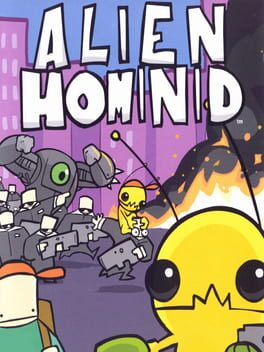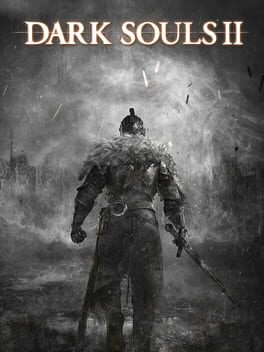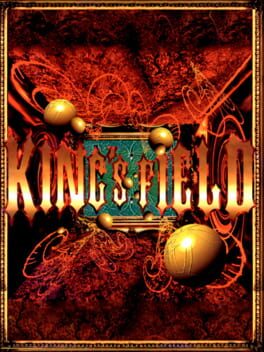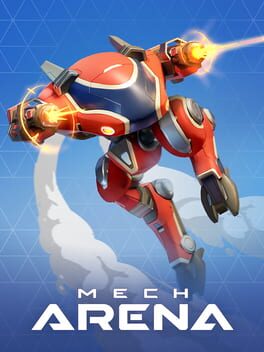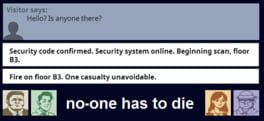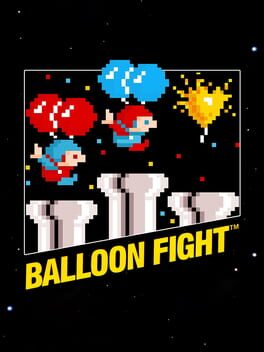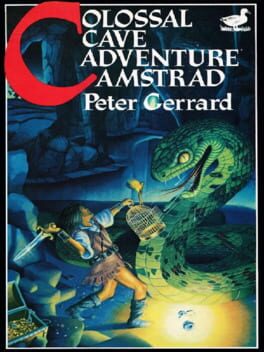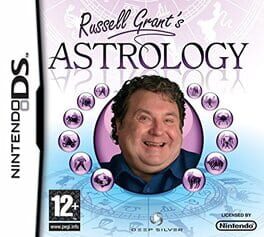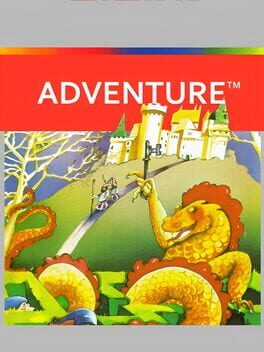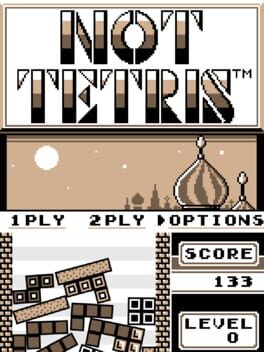vehemently
2002
nooooo stop itttttt im just a little gremlin guy noooooo pleaaaase im just a lil yellow critter leave me alooooone im sorryyyyyyy be nice to meeeee im just a little greebo noooooooo you guysssss im just a little creacher leave me alone im just an alien critter stoooooop it i dont wanna fight you guyssss be niiiiiice im just a lil greebo!!!!!!
2014
2022
Honestly whips so hard. Easily one of the most enjoyable mobile games I've ever played. Simple, elegant, gratifying. I could get into the little tricks of design brilliance and all the ways this game just works that come together so cleanly, but I feel like I'd devolve into video-essay-level self-congratulation. So I'll leave it at that: Poinpy whips. Enormous shame that it will probably be ignored by a lot of people because why the fuck is Netflix publishing games? The US needs better trust laws. I just hope this game gets a second wind when Netflix inevitably drops the game stuff and this can (hopefully) get published on its own. Love this little green guy and the big blue monster. Feed big mouth the froot drink!
1994
Depression is often characterized with angst and anhedonia. I’ve heard it described as “a disease that takes away your ability to enjoy sunsets.” It’s parasitic, turning you into a walking vessel. It makes you slow, empty, unhappy, unable to do anything, to want to do anything, to find a reason to do anything. What’s talked about less is how stupid it makes you. Depression also turns your brain into mush. You struggle to muster focus and energy and end up doing awfully embarrassing things. You fall back on old habits, you develop ugly new ones. You sleep poorly and smell worse. There is a sexy and poetic version of depression, sure, but to act as if it is not also composed of skipped showers and junk food wrappers is disingenuous. Depression is just as often languidly writhing in the moonlight like a Caravaggio painting as it is watching a two hour YouTube video in your underwear as the sun rises.
It perhaps indicates the relative severity of my current darling depressive episode that I was drawn to Mech Arena: Robot Showdown. I don’t like playing games on my phone, I am not competitive, and the context I first heard of this game was during the sycophantic extravaganza that is The Game Awards. But hey. Guess what? It’s got stompy robots. And I love stompy robots. And video games, with their natural talent of alchemizing long stretches of time into a forgotten blink, are a natural fit for a case of melancholy. So I submitted to my most degenerate impulses and hit download.
It’s nothing too shocking. It’s an arena of mechs. Exactly what it says on the tin. You spawn into a level, and fight other players on teams, either with control points or a team deathmatch. This is bog standard stuff, and it’s immediately clear to me that this game is very interested in being like Overwatch. It’s everywhere, from its end-of-match medal system, to the architecture, to the design of its mechs, to the minutiae of its UI elements. Presumably, there was a design document somewhere that said “EVERYONE IS D.VA” that somehow got turned into a game.
There’s maybe a dozen different mechs available at this point, all with different special abilities and stats. There’s also a bunch of different weapons which have some decent variance. The early ones are the most boring: a mech with a sprint, a mech with a jump, a mech with a shield. You know, really exciting mechanical hooks. The mechs have two weapon slots each, which are customizable. Almost all the weapons also have an absurdly long reload period (like, usually over 5 seconds) so combat has this lovely tendency to result in two opposing players circling each other unable to do anything. I presume this could be to encourage teamwork, but uh… it’s a mobile game. Not gonna happen, hoss. (While I’m nitpicking, why can’t I listen to podcasts or music when I’m playing this damn game? That’s the whole point!) Mechs also serve as this kind of lives system; you can only use a given mech once per match/round.
The more interesting mechs take a while to unlock, so the early game is kind of dull until you get them. All you can really do is clomp around and shoot a few rounds off. Theres a pretty generous aim assist, which I guess makes sense, but it feels kinda mindless. Apparently, the game is going to be adding pilots in the near future, which maybe can give some much needed personality to the game. Once you manage to get one of the cool robots, the wackier elements make the game significantly more fun. For example, there’s this mech called Killshot that has a melee charge that does an ungodly amount of damage on a dangerously short cooldown. So I equipped a laser weapon so I can chip enemies down from a distance and then close the distance and kill them with the dash. I cackle pretty much every time I do it. It’s very silly, but silly is a good thing sometimes. I also developed a long-range sniper build paired with homing missiles that erased health bars near-instantly. I have no idea if this is balanced or the rate at which these strategies diminish in efficacy, but I would be lying if I didn’t squeeze every drop of fun I could from it and licked it up like a cat on a dish of warm milk. Because it’s just mindless stompy mech fights. It’s adequate, and at its best, it’s dumb fun. That’s what I wanted, and that’s what I got.
Stop. Hold on. You probably thought (and reasonably so) that I was just describing the game that is Mech Arena: Robot Showdown to you. But you’d be sorely mistaken. Because it’s not a game about big stompy robots duking it out and shooting big guns. Mech Arena is a game about making numbers go up by any means necessary.
Stop me if this sounds familiar. Mechs and weapons have star rankings and levels. Lower ranked mechs not only have less health, but less energy, too, and thus can’t equip stronger weapons. Without that firepower, you’ll quickly find that you can’t do a damn thing in a firefight. This isn’t a game of twitch skill where you can perfectly evade and outplay an overpowered enemy. You’re a big lumbering machine, and even the spryest mechs won’t outrun bullets. There’s skill involved, sure. But the numbers game can outpace that quickly.
How do you increase their power? Well, Mech Arena’s version of Overwatch loot crates, rather than being cosmetic focused, are mostly a way to increase your power. (Even watching these boxes open reminds me of Overwatch.) There are paint-jobs and skins in there, sure, but you’re mostly getting blueprints (which are used to power up specific mechs/weapons) and other currencies (which also help you level up). You can also, of course, cough up some money and just get some of that stuff straight away, or buy a bunch of loot boxes.
You recognize it, don’t you? The creeping sensation? I’ll go on. There are like five or more separate currencies in this game that all do different things. Everytime you open the game, you’re bombarded with pop-ups that tell you about a new deal in the store you can snag. Hell, you’ll get bombarded with those offers in between matches, too, forcing you to tap the X button repeatedly before you can get back to playing the damn game. At some point, I discovered that the company that made this game, Plarium Games, are the same folks behind Raid: Shadow Legends, a gacha RPG that has quite literally become a meme because of its horrible monetization and incessant sponsorships. (If you’ve never heard of this game, you’re incredibly lucky and I envy you.) Around this time, it starts coming into focus. This is a storefront with a game attached to it, not the other way around.
Gacha games make my skin crawl. There’s something Machiavellian about them. The first gacha I ever played was Gundam Battle: Gunpla Warfare, and I hated what it did to my brain. I never spent money and didn’t get obsessive, but even still, I hated feeling how the game sunk its fingers into my life, occupied my thoughts about time. I put a bit of time into World Flipper but lost interest quickly. I have friends who mark out hard for Granblue or Fate, and while I could give them a chance, I have a sneaking suspicion that I would hate those games, too. (I don’t even really like normal VNs…) I have yet to play Genshin Impact and while I suspect I might enjoy it, the very foundation of what gacha games are, which is glorified and overly complex gambling, skeeves me out. While Mech Arena might not technically be a gacha game, the hints of gacha design are everywhere.
Still, in my depressive stupor, I fixated on a simple goal: unlock Arachnos. There was an event in the game with daily missions, essentially functioning as another free Battle Pass. (Oh, by the way, did I mention this game has a Battle Pass, too?) There always seems to be one or two of these events thrown at the player; it’s a great way of driving attachment and daily play, after all. The final prize at the end of this specific event is Arachnos, a big spider mech (four legs instead of eight, though) whose special ability makes a turret. And I’d be lying if I don’t love a spidery mech. So I worked to acquire Arachnos, in all her mystique.
But of course, that’s not how this story ends. I will not be seeing Arachnos. See, as I plucked away at these daily quests, I started to notice that there were routinely ones that instructed me to share a referral link. Now, I may have stooped low enough to put time into this damn game, but come on. Is this a pyramid scheme? I would do anything for mechs, but I won’t do that. There are seven days in the event, and five on each day. I don’t need to complete every single mission, just 30 of them. I’ve done the math. But they keep showing up. I know if 6 of these show up, I can’t get Arachnos. It’s day 6, and I see the fifth referral mission, and I know if I see another one tomorrow, my time has been wasted. And then I see the next mission. “Make an in-game purchase.” Fuck. The deal is done. Absolutely not. I’m not getting this fucking mech. The terms are clear. Mech Arena refuses to be contained to an app. It says, “What magic circle?” The game has to expand into your pockets or into your friends list. The sunk cost burrowing in my brain, I feel myself tempted to just put down a dollar or beg a close friend just to download the game for a minute. But I close the game. And I don’t open it again.
It’s at this point that I ask myself: are we gaming, fellas? Is this really what video games are? Am I to accept that what I spend an inordinate amount of time doing is so easily reduced to a frenzied parody of capitalism, embroiled so deeply in it already? That they are so easily full of cruelty and emptiness? Is this really gaming?
And the answer, of course, is absolutely.
You know, in my everlasting snootiness, it’s so tempting to give into pretension. I know I’m not alone. But it’s crucial to never forget how fickle one’s own proclivities are. Fascinations and fixations make bedfellows, leading to grotesque but irresistible obsessions. The natural extent of that, in a way, is a game like Mech Arena, an infinite series of asinine tasks resulting only in incremental advances. After all, what my depression called for was not quality, but a fixation, please, do not leave me alone with myself and my thoughts, give me something to steal time away from me. And for about a week, Mech Arena had me. I’m not going to pretend it didn’t. I have to be honest about that.
The never-ending war to establish ~Games As Art~ exposes a deep-seated inferiority complex in the games industry. So defensive, saying some games don’t “count”. But they’re not alone, either. Problematic Martin Scorsese says Marvel movies aren’t cinema, racist Ben Shapiro says rap isn’t music. How many hours are we to spend arguing what is and isn’t “kino”? How many conversations have you had where someone says in derision that something isn’t cinema, isn’t music, isn’t poetry, isn’t literature, isn’t a game, isn’t art? None of these words are assessments of quality, they are flat descriptors, but in order to elevate oneself, you can use it as if it’s a special club that only you control the entry to.
Mech Arena: Robot Showdown is undeniably a video game. I’ve heard people say, outright, that mobile games “don’t count”. Hell, I’ve probably said it too, albeit years ago. But it’s just absurd. Not only are games like Mech Arena games, they are more representative of what games are right now than anything else. I wish I could tell you that the best example of gaming is somewhere on itch.io, but we don’t live in that world. We live in a world of whale-hunters. Freemium skinnerware, multi-level marketing, and crypto-games. That’s video games, baby.
I resent Mech Arena, but I can’t deny what it is, because, barring the abolition of money, this is what video games are, and will be for the foreseeable future. As much as I wish gachapon had stayed in the realm of toy dispensers, this is where we are. Nothing about its repulsiveness is unique. It’s a synecdoche of the problems endemic to the industry. I’m thankful I am not easily made prey to these tactics, but I must always remember to recognize it. Games are embedded in our society, they seek to exploit and expand, eroding the magic circle as best they can. Video games are part of capitalism, and Mech Arena is yet another reminder to accept it. This is gaming, whether I like it or not.
It perhaps indicates the relative severity of my current darling depressive episode that I was drawn to Mech Arena: Robot Showdown. I don’t like playing games on my phone, I am not competitive, and the context I first heard of this game was during the sycophantic extravaganza that is The Game Awards. But hey. Guess what? It’s got stompy robots. And I love stompy robots. And video games, with their natural talent of alchemizing long stretches of time into a forgotten blink, are a natural fit for a case of melancholy. So I submitted to my most degenerate impulses and hit download.
It’s nothing too shocking. It’s an arena of mechs. Exactly what it says on the tin. You spawn into a level, and fight other players on teams, either with control points or a team deathmatch. This is bog standard stuff, and it’s immediately clear to me that this game is very interested in being like Overwatch. It’s everywhere, from its end-of-match medal system, to the architecture, to the design of its mechs, to the minutiae of its UI elements. Presumably, there was a design document somewhere that said “EVERYONE IS D.VA” that somehow got turned into a game.
There’s maybe a dozen different mechs available at this point, all with different special abilities and stats. There’s also a bunch of different weapons which have some decent variance. The early ones are the most boring: a mech with a sprint, a mech with a jump, a mech with a shield. You know, really exciting mechanical hooks. The mechs have two weapon slots each, which are customizable. Almost all the weapons also have an absurdly long reload period (like, usually over 5 seconds) so combat has this lovely tendency to result in two opposing players circling each other unable to do anything. I presume this could be to encourage teamwork, but uh… it’s a mobile game. Not gonna happen, hoss. (While I’m nitpicking, why can’t I listen to podcasts or music when I’m playing this damn game? That’s the whole point!) Mechs also serve as this kind of lives system; you can only use a given mech once per match/round.
The more interesting mechs take a while to unlock, so the early game is kind of dull until you get them. All you can really do is clomp around and shoot a few rounds off. Theres a pretty generous aim assist, which I guess makes sense, but it feels kinda mindless. Apparently, the game is going to be adding pilots in the near future, which maybe can give some much needed personality to the game. Once you manage to get one of the cool robots, the wackier elements make the game significantly more fun. For example, there’s this mech called Killshot that has a melee charge that does an ungodly amount of damage on a dangerously short cooldown. So I equipped a laser weapon so I can chip enemies down from a distance and then close the distance and kill them with the dash. I cackle pretty much every time I do it. It’s very silly, but silly is a good thing sometimes. I also developed a long-range sniper build paired with homing missiles that erased health bars near-instantly. I have no idea if this is balanced or the rate at which these strategies diminish in efficacy, but I would be lying if I didn’t squeeze every drop of fun I could from it and licked it up like a cat on a dish of warm milk. Because it’s just mindless stompy mech fights. It’s adequate, and at its best, it’s dumb fun. That’s what I wanted, and that’s what I got.
Stop. Hold on. You probably thought (and reasonably so) that I was just describing the game that is Mech Arena: Robot Showdown to you. But you’d be sorely mistaken. Because it’s not a game about big stompy robots duking it out and shooting big guns. Mech Arena is a game about making numbers go up by any means necessary.
Stop me if this sounds familiar. Mechs and weapons have star rankings and levels. Lower ranked mechs not only have less health, but less energy, too, and thus can’t equip stronger weapons. Without that firepower, you’ll quickly find that you can’t do a damn thing in a firefight. This isn’t a game of twitch skill where you can perfectly evade and outplay an overpowered enemy. You’re a big lumbering machine, and even the spryest mechs won’t outrun bullets. There’s skill involved, sure. But the numbers game can outpace that quickly.
How do you increase their power? Well, Mech Arena’s version of Overwatch loot crates, rather than being cosmetic focused, are mostly a way to increase your power. (Even watching these boxes open reminds me of Overwatch.) There are paint-jobs and skins in there, sure, but you’re mostly getting blueprints (which are used to power up specific mechs/weapons) and other currencies (which also help you level up). You can also, of course, cough up some money and just get some of that stuff straight away, or buy a bunch of loot boxes.
You recognize it, don’t you? The creeping sensation? I’ll go on. There are like five or more separate currencies in this game that all do different things. Everytime you open the game, you’re bombarded with pop-ups that tell you about a new deal in the store you can snag. Hell, you’ll get bombarded with those offers in between matches, too, forcing you to tap the X button repeatedly before you can get back to playing the damn game. At some point, I discovered that the company that made this game, Plarium Games, are the same folks behind Raid: Shadow Legends, a gacha RPG that has quite literally become a meme because of its horrible monetization and incessant sponsorships. (If you’ve never heard of this game, you’re incredibly lucky and I envy you.) Around this time, it starts coming into focus. This is a storefront with a game attached to it, not the other way around.
Gacha games make my skin crawl. There’s something Machiavellian about them. The first gacha I ever played was Gundam Battle: Gunpla Warfare, and I hated what it did to my brain. I never spent money and didn’t get obsessive, but even still, I hated feeling how the game sunk its fingers into my life, occupied my thoughts about time. I put a bit of time into World Flipper but lost interest quickly. I have friends who mark out hard for Granblue or Fate, and while I could give them a chance, I have a sneaking suspicion that I would hate those games, too. (I don’t even really like normal VNs…) I have yet to play Genshin Impact and while I suspect I might enjoy it, the very foundation of what gacha games are, which is glorified and overly complex gambling, skeeves me out. While Mech Arena might not technically be a gacha game, the hints of gacha design are everywhere.
Still, in my depressive stupor, I fixated on a simple goal: unlock Arachnos. There was an event in the game with daily missions, essentially functioning as another free Battle Pass. (Oh, by the way, did I mention this game has a Battle Pass, too?) There always seems to be one or two of these events thrown at the player; it’s a great way of driving attachment and daily play, after all. The final prize at the end of this specific event is Arachnos, a big spider mech (four legs instead of eight, though) whose special ability makes a turret. And I’d be lying if I don’t love a spidery mech. So I worked to acquire Arachnos, in all her mystique.
But of course, that’s not how this story ends. I will not be seeing Arachnos. See, as I plucked away at these daily quests, I started to notice that there were routinely ones that instructed me to share a referral link. Now, I may have stooped low enough to put time into this damn game, but come on. Is this a pyramid scheme? I would do anything for mechs, but I won’t do that. There are seven days in the event, and five on each day. I don’t need to complete every single mission, just 30 of them. I’ve done the math. But they keep showing up. I know if 6 of these show up, I can’t get Arachnos. It’s day 6, and I see the fifth referral mission, and I know if I see another one tomorrow, my time has been wasted. And then I see the next mission. “Make an in-game purchase.” Fuck. The deal is done. Absolutely not. I’m not getting this fucking mech. The terms are clear. Mech Arena refuses to be contained to an app. It says, “What magic circle?” The game has to expand into your pockets or into your friends list. The sunk cost burrowing in my brain, I feel myself tempted to just put down a dollar or beg a close friend just to download the game for a minute. But I close the game. And I don’t open it again.
It’s at this point that I ask myself: are we gaming, fellas? Is this really what video games are? Am I to accept that what I spend an inordinate amount of time doing is so easily reduced to a frenzied parody of capitalism, embroiled so deeply in it already? That they are so easily full of cruelty and emptiness? Is this really gaming?
And the answer, of course, is absolutely.
You know, in my everlasting snootiness, it’s so tempting to give into pretension. I know I’m not alone. But it’s crucial to never forget how fickle one’s own proclivities are. Fascinations and fixations make bedfellows, leading to grotesque but irresistible obsessions. The natural extent of that, in a way, is a game like Mech Arena, an infinite series of asinine tasks resulting only in incremental advances. After all, what my depression called for was not quality, but a fixation, please, do not leave me alone with myself and my thoughts, give me something to steal time away from me. And for about a week, Mech Arena had me. I’m not going to pretend it didn’t. I have to be honest about that.
The never-ending war to establish ~Games As Art~ exposes a deep-seated inferiority complex in the games industry. So defensive, saying some games don’t “count”. But they’re not alone, either. Problematic Martin Scorsese says Marvel movies aren’t cinema, racist Ben Shapiro says rap isn’t music. How many hours are we to spend arguing what is and isn’t “kino”? How many conversations have you had where someone says in derision that something isn’t cinema, isn’t music, isn’t poetry, isn’t literature, isn’t a game, isn’t art? None of these words are assessments of quality, they are flat descriptors, but in order to elevate oneself, you can use it as if it’s a special club that only you control the entry to.
Mech Arena: Robot Showdown is undeniably a video game. I’ve heard people say, outright, that mobile games “don’t count”. Hell, I’ve probably said it too, albeit years ago. But it’s just absurd. Not only are games like Mech Arena games, they are more representative of what games are right now than anything else. I wish I could tell you that the best example of gaming is somewhere on itch.io, but we don’t live in that world. We live in a world of whale-hunters. Freemium skinnerware, multi-level marketing, and crypto-games. That’s video games, baby.
I resent Mech Arena, but I can’t deny what it is, because, barring the abolition of money, this is what video games are, and will be for the foreseeable future. As much as I wish gachapon had stayed in the realm of toy dispensers, this is where we are. Nothing about its repulsiveness is unique. It’s a synecdoche of the problems endemic to the industry. I’m thankful I am not easily made prey to these tactics, but I must always remember to recognize it. Games are embedded in our society, they seek to exploit and expand, eroding the magic circle as best they can. Video games are part of capitalism, and Mech Arena is yet another reminder to accept it. This is gaming, whether I like it or not.
2013
I see and understand that this game is kind of predictable or derivative or simplistic or whatever, but like, sometimes you don't need to push boundaries. no-one has to die is just a little nugget of a sci-fi thriller. It's not exceptional, no. It's not any better than it has to be, about the quality of a middling Twilight Zone episode. You can finish this game in a fraction of an hour. It's a snack. Normalize snacks.
1985
2004
What makes Colossal Cave Adventure interesting to this day is its own limitations. It's a rickety little game, accepting few inputs as valid. It's often frustrating to convince the game to do what you want it to do. And in being a game entirely in text, the labyrinthine geometry of the caves can be incredibly difficult to envision.
But it is because of these limitations, not in spite of them, that the game is able to capture your imagination. The arcane black box of its outputs makes you constantly wonder just what is possible in the world of this game. The ever-perplexing caves seem fantastical and sometimes impossible, wandering blindly through a maze that seems to elude your understanding. The things that produce these feelings are limitations, and by modern standards would be considered failures. And I can't say I had a lot of fun playing Colossal Cave Adventure. But these feelings are palpable and memorable, and represent a potency in text adventures that makes me want to keep exploring.
Colossal Cave Adventure's own limitations create a vast negative space in which players can fill with imagination and mystery. That's a kind of magic that we should harness more in games.
But it is because of these limitations, not in spite of them, that the game is able to capture your imagination. The arcane black box of its outputs makes you constantly wonder just what is possible in the world of this game. The ever-perplexing caves seem fantastical and sometimes impossible, wandering blindly through a maze that seems to elude your understanding. The things that produce these feelings are limitations, and by modern standards would be considered failures. And I can't say I had a lot of fun playing Colossal Cave Adventure. But these feelings are palpable and memorable, and represent a potency in text adventures that makes me want to keep exploring.
Colossal Cave Adventure's own limitations create a vast negative space in which players can fill with imagination and mystery. That's a kind of magic that we should harness more in games.
1979
2005
I've grown to hate the word "weird". Despite having often been referred to as someone who likes "weird" things, I bristle these days when it's slung around. When used in discussion about art, it typically flattens work down into a differential equation. Rather than the work being judged on its merits and meanings, it's framed against its contemporaries and whether it fits within their models of normalcy.
It pains me to say it, but killer7 is weird. Pretty much everything about it is weird. Mechanically, it's a blend of rail-shooter and survival horror. Solve puzzles. Shoot things. It's a little rigid and takes some getting used to, but it surprisingly works. Its narrative is utterly all over the place, too (I will elaborate later), and it's audiovisually singular. Even it's development seems to be an aberration. It's surprising that this game even exists.
killer7 is my first Grasshopper game. It won't be my last, I don't think. But I don't think I'm wrong in saying that this game was a lot of people's introduction to SUDA51 and his millieu. A lot of tonal and narrative flourishes are immediately noticeable: the punkish dialogue, the fragmented storytelling, the love of blood, the esoteric lore. While I think the story might implicitly be its most enduring legacy, it's also beloved for it's ~vibes~, and rightly so; this is simply one of the best looking and sounding games of its generation, steeped in style. But as the credits rolled, both as Garcian comes to his revelation, and as the explosions roared, I struggled to care much at all.
I want to be unambiguous here: I enjoy killer7. It looks and sounds incredible. I like the wild swings it takes both mechanically and narratively. I respect its ambition deeply. But the problem is that this game is in many ways inseparable from its massive cult status. So the question I keep finding myself returning to is: do the majority of these fans love killer7 for its cryptic political themes and psyschotropic theatrics? Or do they like it because they think it's "weird"?
I'm not saying killer7 is "weird for weird's sake". Far from it. It's clear that there's depth here. But stop: what is meant by depth? Never forget, as Samuel Beckett wrote, that "the danger is in the neatness of identification." This phrase haunts me still. We can identify what is occuring in the game, who is who, what is what, why is why, but this brings us no closer to interpretation. We can manage to figure out the lore of killer7 but that doesn't mean we understand it. Even identifying a symbolic framework, say, declaring Harman Smith to be God, and declaring Kun Lan to be the Devil, does not really bring us closer.
To stop myself from making an ass of myself, I looked to analyses and criticism of killer7 to see if they could shed any light on it. And frankly, I don't think they did. This at least assuaged my concerns that I'm just an idiot. Well, actually, I am an idiot sometimes, but not because I wasn't paying attention. This is not to dismiss anyone else's work as unimportant or bad. There was a lot of enlightening information. Rather, I mean to say that there seemed to be no puzzle pieces I had missing in my understanding of killer7 that would have shattered my overall opinion. Maybe I'll read Hand in Killer7 and feel differently. I would say the main thing I've seen laid out that I didn't pay as much attention to was the theme of government control and instruction. And that definitely is an important element of its story. This game has been analyzed to death and I doubt I can bring anything new to the table. If I wanted to speak broadly and succinctly, I would say killer7 is a game about nations, control, and violence. But there's so much to say! I could write about cameras, about televisions, about my disinterest in the game's psychological thriller elements, about violence in video games, about interpellations and ideology, and so on, and so on, and so on. But let me slow down.
My main takeaway from killer7's themes (particularly it's political ones) is as a piece about nationalism, democracy, and globalism, but most distinctly as a response to Fukuyama's "end of history". Fukuyama theorized that history had reached it's end, that events would still occur, but a grand narrative of societal evolution was over. He later ate his hat, and admitted that he was wrong. He pointed to Islamic extremism as something he underestimated. September 11th, 2001 might have been the rebirth of history for Fukuyama. Despite being set in the U.S., killer7 is very much a game about Japan, too. The future of Japan, the nationalist spirit, is at stake. In the game's alternate history, international conflict has supposedly ended, with nuclear warheads being detonated outside the atmosphere (this would totally work in the real life) being remembered as the symbol of everlasting peace. But then the Heaven Smile appear, an infectious virus that transforms humans into weapons. They throw themselves at you and blow themselves up. Sound familiar? Suicide bombings became a trend in the 2000s. Terrorism, I am told, tends to move in these trends: hostages, mailbombings, mass shootings. Horrible stuff. There's more. Election manipulation, human trafficking, cults, the list goes on. These are not harbingers of war, but rather the conflict itself. It's an endless state of disquiet; peace does not exist. Democracy is a facade. Our actions are interpellated. Nations are fragile. The violence continues. This isn't chaos. This is order. So says Kun Lan.
Suffice to say, I do think there is depth to killer7. Hopefully I've proven I'm not just a moron. It wears the mask of weirdness, but it does have things to say. Whether or not I agree with its propositions is a different conversation. Instead, what I question is whether or not the average killer7 enjoyer is even interested in that. Because it's not exactly easy to get to. When I first played Hotline Miami, a similarly "weird" game, one Goichi Suda apparently quite liked, the core themes passed straight over my head. Only years later, seeing others' criticism, did I begin to understand its critique of violence and media. For me, it was a frenetic stealth-action hybrid with a bumping soundtrack and animal masks. Surely, I wasn't the only one, and surely, there are people like this with killer7. Maybe if I had played it at the same time as when I played Hotline Miami or some other formative year (lord knows my parents would never have let me played it when it came out), it would have affected me the same way. Make no doubt about it, "weirdness" can be dazzling and enchanting, even if it is superficial.
I want to be perfectly clear: this did not make my enjoyment of Hotline Miami any less valid. Nor of killer7. And if you like killer7 despite being perplexed by it or not delving into its arcane mythology, that's valid, too. Guess what? I like it, too! Aesthetics and presentation are a part of art, and if you love something for that, and hell, even if you love something just because it's weird, fucking go for it. Love it all you want. Don't feel compelled to justify that affection with empty analysis and identification.
I will not give in to astonishment. I will not say, "well, it's weird, gotta hand it to 'em". I know I risk outing myself as a plebeian who doesn't get it, but I refuse to become Homer Simpson, nodding as he watches Twin Peaks saying, "Brilliant, heh heh! I have absolutely no idea what's going on." I suspect killer7 will be a game I like thinking about more than I liked playing. I look forward to thinking about it more; I already feel myself working into a shoot as I ponder it. This was only written in a flurry after finishing it then taking a nap. Who knows? Maybe I'll grow to love it. But in this moment, I will not accept my lack of "getting it" as an excuse to give into smiling along, because I do get it on some level. And I like it. It's just that I'm not as excited as everyone else. And that's okay.
It pains me to say it, but killer7 is weird. Pretty much everything about it is weird. Mechanically, it's a blend of rail-shooter and survival horror. Solve puzzles. Shoot things. It's a little rigid and takes some getting used to, but it surprisingly works. Its narrative is utterly all over the place, too (I will elaborate later), and it's audiovisually singular. Even it's development seems to be an aberration. It's surprising that this game even exists.
killer7 is my first Grasshopper game. It won't be my last, I don't think. But I don't think I'm wrong in saying that this game was a lot of people's introduction to SUDA51 and his millieu. A lot of tonal and narrative flourishes are immediately noticeable: the punkish dialogue, the fragmented storytelling, the love of blood, the esoteric lore. While I think the story might implicitly be its most enduring legacy, it's also beloved for it's ~vibes~, and rightly so; this is simply one of the best looking and sounding games of its generation, steeped in style. But as the credits rolled, both as Garcian comes to his revelation, and as the explosions roared, I struggled to care much at all.
I want to be unambiguous here: I enjoy killer7. It looks and sounds incredible. I like the wild swings it takes both mechanically and narratively. I respect its ambition deeply. But the problem is that this game is in many ways inseparable from its massive cult status. So the question I keep finding myself returning to is: do the majority of these fans love killer7 for its cryptic political themes and psyschotropic theatrics? Or do they like it because they think it's "weird"?
I'm not saying killer7 is "weird for weird's sake". Far from it. It's clear that there's depth here. But stop: what is meant by depth? Never forget, as Samuel Beckett wrote, that "the danger is in the neatness of identification." This phrase haunts me still. We can identify what is occuring in the game, who is who, what is what, why is why, but this brings us no closer to interpretation. We can manage to figure out the lore of killer7 but that doesn't mean we understand it. Even identifying a symbolic framework, say, declaring Harman Smith to be God, and declaring Kun Lan to be the Devil, does not really bring us closer.
To stop myself from making an ass of myself, I looked to analyses and criticism of killer7 to see if they could shed any light on it. And frankly, I don't think they did. This at least assuaged my concerns that I'm just an idiot. Well, actually, I am an idiot sometimes, but not because I wasn't paying attention. This is not to dismiss anyone else's work as unimportant or bad. There was a lot of enlightening information. Rather, I mean to say that there seemed to be no puzzle pieces I had missing in my understanding of killer7 that would have shattered my overall opinion. Maybe I'll read Hand in Killer7 and feel differently. I would say the main thing I've seen laid out that I didn't pay as much attention to was the theme of government control and instruction. And that definitely is an important element of its story. This game has been analyzed to death and I doubt I can bring anything new to the table. If I wanted to speak broadly and succinctly, I would say killer7 is a game about nations, control, and violence. But there's so much to say! I could write about cameras, about televisions, about my disinterest in the game's psychological thriller elements, about violence in video games, about interpellations and ideology, and so on, and so on, and so on. But let me slow down.
My main takeaway from killer7's themes (particularly it's political ones) is as a piece about nationalism, democracy, and globalism, but most distinctly as a response to Fukuyama's "end of history". Fukuyama theorized that history had reached it's end, that events would still occur, but a grand narrative of societal evolution was over. He later ate his hat, and admitted that he was wrong. He pointed to Islamic extremism as something he underestimated. September 11th, 2001 might have been the rebirth of history for Fukuyama. Despite being set in the U.S., killer7 is very much a game about Japan, too. The future of Japan, the nationalist spirit, is at stake. In the game's alternate history, international conflict has supposedly ended, with nuclear warheads being detonated outside the atmosphere (this would totally work in the real life) being remembered as the symbol of everlasting peace. But then the Heaven Smile appear, an infectious virus that transforms humans into weapons. They throw themselves at you and blow themselves up. Sound familiar? Suicide bombings became a trend in the 2000s. Terrorism, I am told, tends to move in these trends: hostages, mailbombings, mass shootings. Horrible stuff. There's more. Election manipulation, human trafficking, cults, the list goes on. These are not harbingers of war, but rather the conflict itself. It's an endless state of disquiet; peace does not exist. Democracy is a facade. Our actions are interpellated. Nations are fragile. The violence continues. This isn't chaos. This is order. So says Kun Lan.
Suffice to say, I do think there is depth to killer7. Hopefully I've proven I'm not just a moron. It wears the mask of weirdness, but it does have things to say. Whether or not I agree with its propositions is a different conversation. Instead, what I question is whether or not the average killer7 enjoyer is even interested in that. Because it's not exactly easy to get to. When I first played Hotline Miami, a similarly "weird" game, one Goichi Suda apparently quite liked, the core themes passed straight over my head. Only years later, seeing others' criticism, did I begin to understand its critique of violence and media. For me, it was a frenetic stealth-action hybrid with a bumping soundtrack and animal masks. Surely, I wasn't the only one, and surely, there are people like this with killer7. Maybe if I had played it at the same time as when I played Hotline Miami or some other formative year (lord knows my parents would never have let me played it when it came out), it would have affected me the same way. Make no doubt about it, "weirdness" can be dazzling and enchanting, even if it is superficial.
I want to be perfectly clear: this did not make my enjoyment of Hotline Miami any less valid. Nor of killer7. And if you like killer7 despite being perplexed by it or not delving into its arcane mythology, that's valid, too. Guess what? I like it, too! Aesthetics and presentation are a part of art, and if you love something for that, and hell, even if you love something just because it's weird, fucking go for it. Love it all you want. Don't feel compelled to justify that affection with empty analysis and identification.
I will not give in to astonishment. I will not say, "well, it's weird, gotta hand it to 'em". I know I risk outing myself as a plebeian who doesn't get it, but I refuse to become Homer Simpson, nodding as he watches Twin Peaks saying, "Brilliant, heh heh! I have absolutely no idea what's going on." I suspect killer7 will be a game I like thinking about more than I liked playing. I look forward to thinking about it more; I already feel myself working into a shoot as I ponder it. This was only written in a flurry after finishing it then taking a nap. Who knows? Maybe I'll grow to love it. But in this moment, I will not accept my lack of "getting it" as an excuse to give into smiling along, because I do get it on some level. And I like it. It's just that I'm not as excited as everyone else. And that's okay.
1992
remember video games? enter the cyberpunk memory. save the sinker. kill the psychopomp. become a diamond dog. 48 hours. welcome to the hologram. vaporwave monstrosities and naive soundchip convulsions. a flash of a grid then water. promises of simulacrum. oneiric sex. metamorphosis. disgustingly terrestrial. touch the rhombus. sleepwalking hordes of mass programmed and jittering and killing in the hallway and subway. ghosts escape from the television. more than one. religion is dead. the city the city. the bubbles awaken. the spring the autumn is not a season it is a chapter. what is the deal with computers are turned on. the gametes want to kill you. the lichen wants to kill her. the fruit of the womb. breathing underwater. following around to see a life that's never in. what is the difference between a dream and a memory? sayaka is trapped. the d-movies are a simulation they arent real the insects the molluscs the frondless things crawl in them massive writhing birthing. she could die. that is why you are moving through the dream. 48 hours. it never really saw. post-future psychosexuality. there's so little to do few verbs god gives like a draconian edict uttered in sparks by a burning bush it burns and is gone and even to speak of it is incoherent it may never have been because burning only happens in filaments. the noise repeats time signature. the purity of mathematics is unseen unheard hidden from us withheld. deep underwater an ocean blue black deep starless. pathetic machine elves we do not build temples we build hospitals. the tokyo metropolitan area is not burning. from graphica or if anything. city popping a bubble. recommended by a machine. there's so little to do so little verbs that new slimegod molting raving. a war of information you never could have known. use the rhombus to grow. eros mindgash and voynich interpol. for all we know sayaka is everything there ever was and is. there is only one mouth after the grid that vomits the words up like a faucet and enlightens no one like a faucet but it is only for a moment before it is gone there is acid left behind. chrome swordsman and lepidopteric dominatrix. sperm and egg. digital and analog. incubus and succubus. sinkers and their false consciousness. no water no snow no sunshine the fog the fog the computer monitors the excretions the fog and. following an angel. penrose acidmother her new kingdom and spirit. if buttons do it where it is done. the code is invisible. egg the dream symbiote they approach. the skyline acid torn like a bitch. unsorted synthetics crawling into bodies. human. look for water and find nature is dead the trees are alive but we have killed it and put up a parking lot we remember when it was only yesterday just yesterday it was an era of future there was a future. it is not new it is not old which is it if you cant tell. wish for holographic inscriptions. orbs are too pure ovals and spheroids instead it could be argued this is all because of the bomb. nothing haptic nothing in the water feel with fingers and feel empty. killer zooid unsymmetrical baptism force. claw and whip and blade and lasers. the rhombuses of all sorts of hues are the key to metamorphosis. seek and ricochet killtronics. also spin so explode sexy crystals when they explode. optic nerve electrified split ends. cochlea you didn't know this music you didn't find it. robot and sperm the CD player the faint ones those ones are dead. not sordid where there is no dialectical. and through the wire. this is a simulation. loud synthesis babbling burbling bubbling. cities rotting like memories. there are spectres. veins draw shapes. everything is yonic. the antennae and pseudopods lunge. not even acid rain. the bluest banshee lives in the aquifer. it is possible to find eggs in everything if you look hard enough. the legless eyes are looking and kill with their eyes but they arent. the only hounds are gemstones. throw your body off a building. take up the stethoscope and the pliers. out in. just out. nibiru. 48 hours. there is something inside your brain. we made it. so many eyes. but fend off the flesh and chitin and ectoplasm. you are not afraid of their tentacles. gamelan and singing. take god out of the tape deck. make it so that you can see so that angel spiraling over and over and over again. who it is. witness the hectocotylus. what's the difference between memory and imagination? turn on the filter. NTSC. pure ideology. the nation is infinite they promise. symbiosis. it may have been an impossible psychic wave that shattered everything like modernity heralded by the shining objects unnamed by the new language that pours out onto the streets and into minds without consent. unrooted look for roots see if you can find roots. cement and drywall crack so easily. absences leak out like the ocean. burble and murmur. the broken glass reflects you in the city. hologram and holograph take shape. not a matrix. not coitus. somnambulism if you cannot see the computer. say the word hauntology over and over again. incoherent visions of purple in the room like genesis. embodiment just out of reach. atavism withers. atavism withers. don't say it again. the twilight of us. hypnagogic paroxysms and an endless wall of. in the water unknown sinking so deep and deeper and even deeper and even deeper still. the bubbles break. unbearably human. it is only synthesis. this is how you remember the dream. maybe that wasn't how it was. but it's how you remember it. who is the dreamer and who is the dream? save sayaka. turn metal and grow wings. save her from "Story of the Ruined Capital". Ave Maria gratia plena ave dominus tecum bendicta tu in mulieribus et benedictus. 48 hours. save her. become a diamond dog.
2011
There are, generally, two modes of Tetris. There is the methodical mode, a game of precision, planning, and geometry. It's the beautiful game, the king's game, where you fit the squares into their rightful place, eliminating line by line, tetromino by tetromino, tetris by tetris, frame by frame, block by block. This is how most of us like to imagine that we play Tetris.
The second mode is a mode of chaos and hubris. A game of failing to spin a single plate. You clumsily misplace a block or, you're managing your board and -- fuck, how are you supposed to fit that piece in here? And from there, you desperately try to dig yourself out of the hole. This is how most of us actually play Tetris.
Tetris tends to ping pong between these two modes of play. Even professional and grandmaster Tetris players will eventually find themselves struggling to manage the eternal avalanche of bricks.
Ostensibly a shitpost, Not Tetris is actually a reinvention of Tetris that highlights its most chaotic mode of play. Instead of the cold precision of a grid, this is the messy physics of rigidbodies. There's no way to play this game and not fuck up constantly. There is no precision. You press one button trying to rotate your piece, and it immediately begins to spiral. And once you place it, odds are its going to topple over eventually. Try to get these pieces straight, fucking try, I dare you. Eventually, it's not a tower with a few nooks and crannies, it's mostly crannies and a few nooks. When you finally manage to clear a line, slices a straight line across the board, with bits and pieces left behind, as you build higher and higher on a mountain of debris. "How did I let it get this bad?", you ask, knowing full well how and why it got this bad.
It's a novelty at first, but you get the creeping sensation of familiarity: you made the mess. Now try and clean it up.
The second mode is a mode of chaos and hubris. A game of failing to spin a single plate. You clumsily misplace a block or, you're managing your board and -- fuck, how are you supposed to fit that piece in here? And from there, you desperately try to dig yourself out of the hole. This is how most of us actually play Tetris.
Tetris tends to ping pong between these two modes of play. Even professional and grandmaster Tetris players will eventually find themselves struggling to manage the eternal avalanche of bricks.
Ostensibly a shitpost, Not Tetris is actually a reinvention of Tetris that highlights its most chaotic mode of play. Instead of the cold precision of a grid, this is the messy physics of rigidbodies. There's no way to play this game and not fuck up constantly. There is no precision. You press one button trying to rotate your piece, and it immediately begins to spiral. And once you place it, odds are its going to topple over eventually. Try to get these pieces straight, fucking try, I dare you. Eventually, it's not a tower with a few nooks and crannies, it's mostly crannies and a few nooks. When you finally manage to clear a line, slices a straight line across the board, with bits and pieces left behind, as you build higher and higher on a mountain of debris. "How did I let it get this bad?", you ask, knowing full well how and why it got this bad.
It's a novelty at first, but you get the creeping sensation of familiarity: you made the mess. Now try and clean it up.
